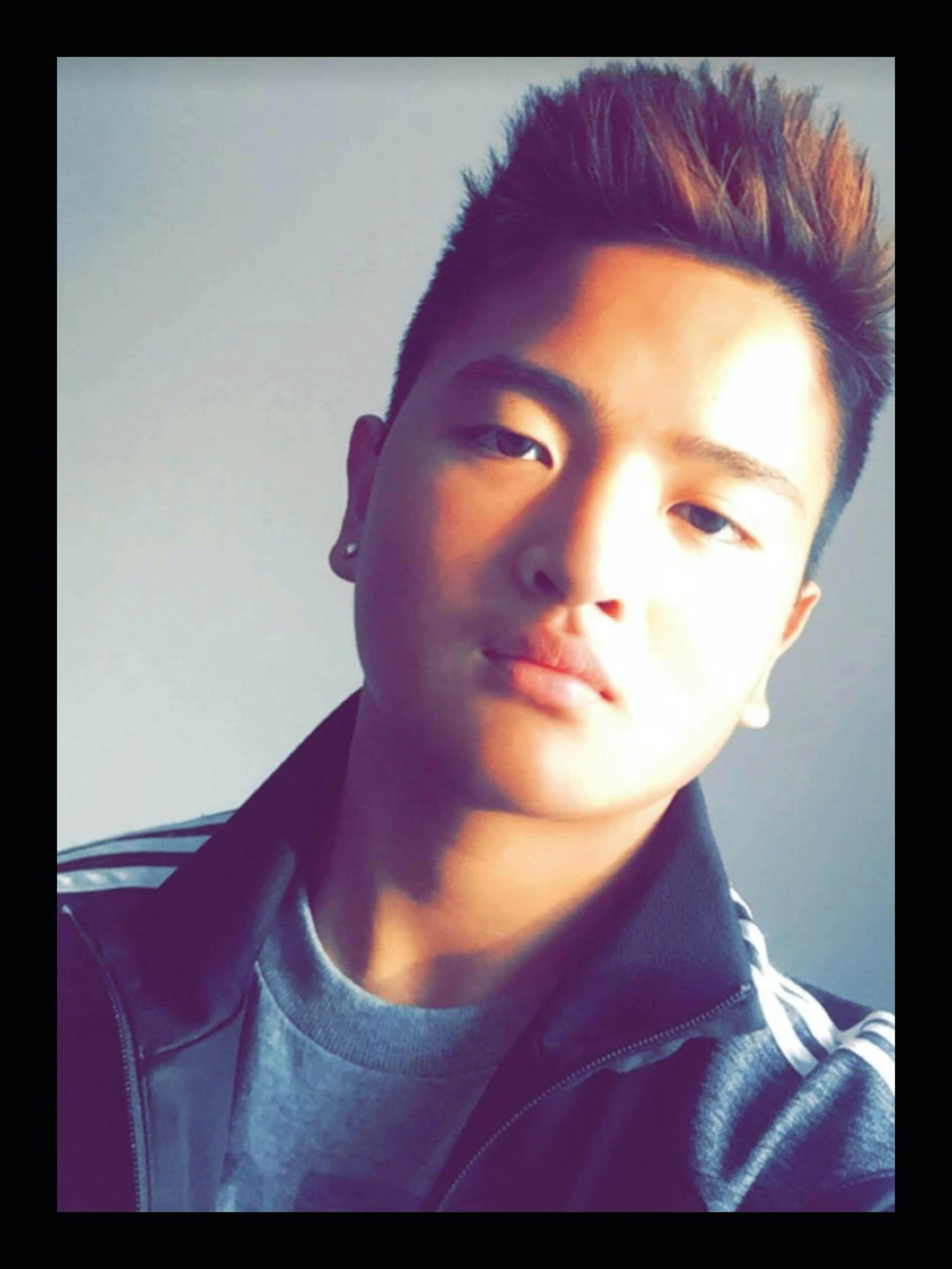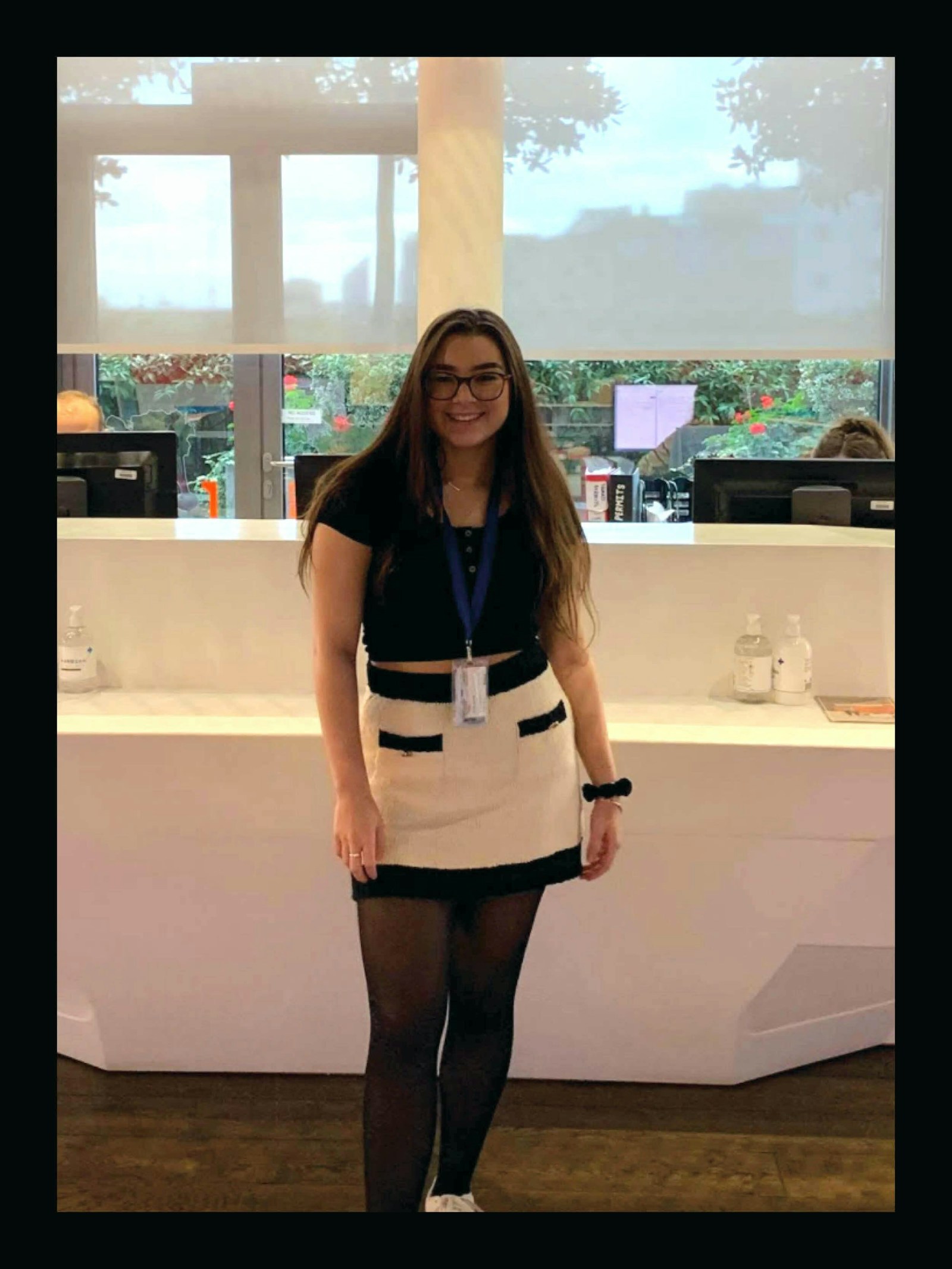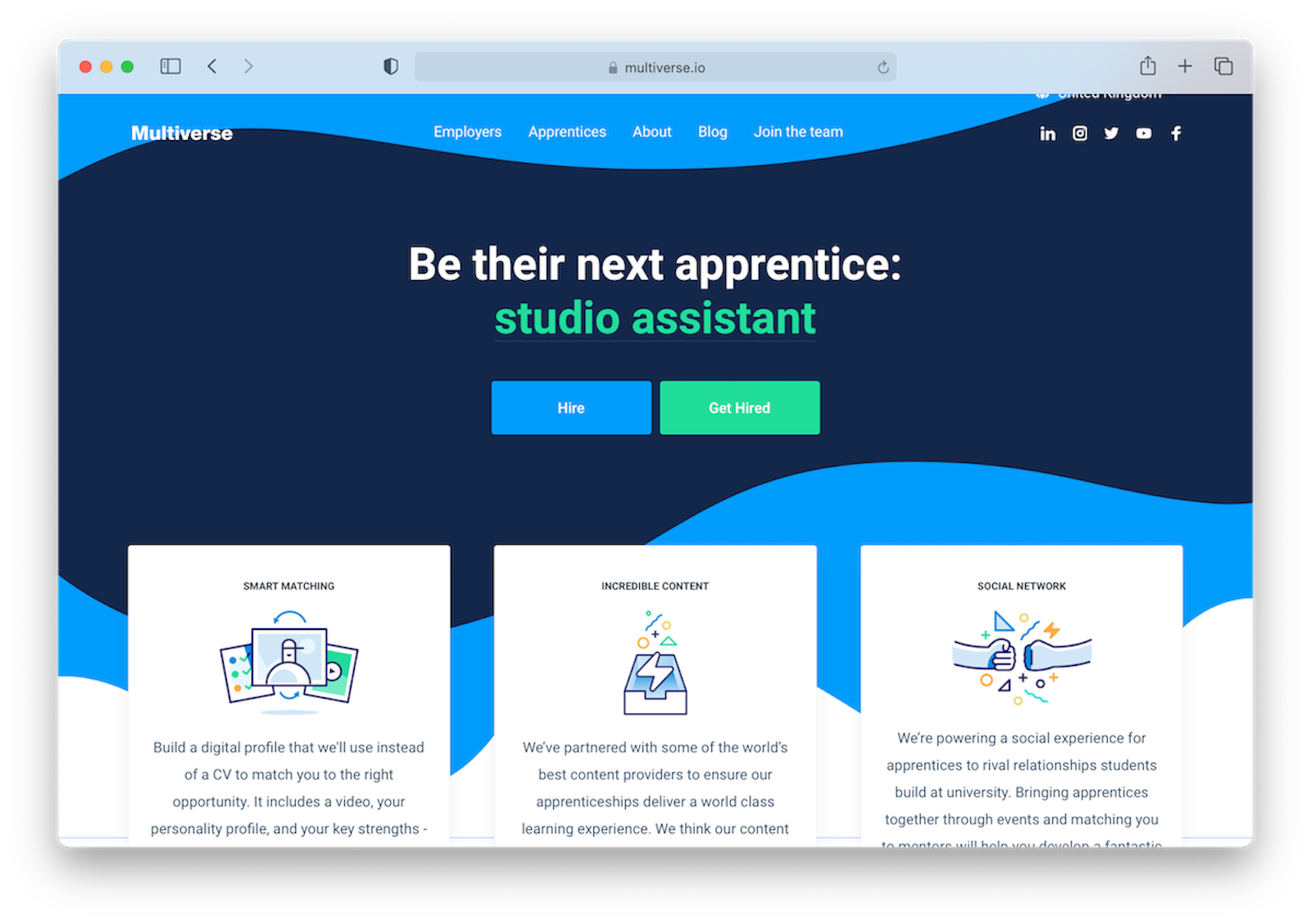What is an apprenticeship, and can it help you access the creative industry?
While many rely on getting a degree as the first step in building a creative career, there’s a lot to be said for apprenticeships. Open to those aged 16 or over, these schemes combine study with full-time, on-the-job training, all while earning a salary. Two people who have become experts on the topic are digital marketing apprentices Richard Alpapara and Molly Johnstone, who both found their opportunities via apprenticeship platform, Multiverse.
If you’re not entirely sure of what an apprenticeship is, or how it can help your career, current apprentices Richard Alpapara and Molly Johnstone are here to help.
Both currently at ‘Level 3’ of their digital marketing apprenticeships, Richard is doing his at non-profit organisation, Scope, while Molly is at Google, working in the video and display sales team. Read on for their guidance in working out whether an apprenticeship is the right route for you.


What is an apprenticeship, and how long does it last?
Earn while you learn
Richard: You can think of apprenticeships as career hacks that give you direct access to the world of work. As an apprentice, you’ll work a full-time role whilst building towards a formal qualification. That means earning while you learn (like, with real money).
Apprenticeships are not to be confused with internships, where you often work for little or no money without gaining any accreditation. In an apprenticeship, you find yourself learning a new skill in a coaching session and applying it at work, all on the same day.
A 12 to 18-month journey
Most sectors offer apprenticeship opportunities in the UK, with a wide range of roles within each. There are a wide range of apprenticeships out there varying in level, length, profession and requirements. For starters though, the average full-time apprenticeship lasts between 12 to 18 months.
What kind of apprenticeships can you do in the creative industry?
Molly: Trying to understand the structure of the creative industry and how to break into it can be confusing. This is why apprenticeships are such a great ‘in’. You put the theory into practice whilst being guided by a mentor with years of experience in the industry.
You’d be surprised how many apprenticeship routes can be creative. I study Level 3 digital marketing, which in itself has many different creative aspects to it.
The list of apprenticeships available in the creative industry isn’t endless but it’s pretty long! Apprenticeships within creative companies include:
– Software engineering
– Business admin
– Digital marketing
– Journalism
– Visual effects
My employer, Google, sometimes offer part-time roles in other teams during apprenticeships, so you get to experience other areas of the business. I work in the sales team day-to-day, and I wanted to get greater exposure to the creative aspects of digital marketing, so I was able to move into the internal creative team. This has taught me so much about data, promotion and really enhanced my soft skills.
It’s a chance to build a portfolio
Richard: Apprenticeships are a great way to break into the creative industries because you can start building your portfolio and using skills you’ve learnt – from copywriting with a digital marketing apprenticeship (like me), to developing new features on a website with a software engineering apprenticeship.
It can involve more creative work than expected
At first glance, the apprenticeships available to you may not perfectly align with your creative aspirations. I went through the same thing. I wanted to get a job as a copywriter, but that proved challenging so I decided to find another way in, through digital marketing.
Ten months into my role at Scope and copywriting is an integral part of my work. I’ve been able to write ad copy that fulfils multiple briefs within my role, and it wasn’t even in the job spec. Creative work may not be directly outlined in job spec but that might be because it’s so embedded into everything you do at work, which shouldn’t discourage creative people from applying.
An apprenticeship will equip you with the broad skills you’ll need to be able to hone in on your specialist role, whether you want to be a designer, content creator, coder or work in any other creative role.
Who are apprenticeships for?
Richard: To start an apprenticeship, you’ll need to be 16 or over, and not in full-time education. You can apply while you’re still at school, as long as you’re 16 or over by the end of the summer holidays.
Apprenticeships go from Level 2, which is equivalent to a GCSE, all the way to Level 6 and 7, which is the same as a full bachelor’s or master’s degree. That means you can start an apprenticeship when it’s right for you, whether that’s once you’ve finished school, college or a bit further along your path.
Where can I find available apprenticeships?
To get an idea of what’s available, check out:
– The government website on apprenticeships
– The UCAS site
How to search for the right opportunity
You can also create an account on GOV.ukUK to find apprenticeships near you. They aggregate apprenticeships from training providers like Multiverse.
You can filter your search via level, job title and location. A wide range of apprenticeship opportunities should then pop up. It will give you the option to apply directly on the site or via the training provider’s website. You’ll be able to track all your apprenticeship applications and receive alerts about new apprenticeships.
If you’re not sure which apprenticeship role fits you best, you can take a skills assessment from the National Careers Service. It contains multiple-choice questions which only takes 5 to 10 minutes to complete. When you finish, you’ll see some suggestions of roles you may enjoy based on your answers.
If you’re looking to go in-depth, you can take the skills health check which will generate a report that helps you to identify your personal and work-based skills even further.

Have apprenticeships changed since lockdown?
Adapting to remote work
Molly: A lot of apprentices have struggled during lockdown, myself included, because the main reason we choose this alternative route is to get hands-on experience, and that can prove challenging behind a screen.
But, from my personal experience, my company was exceptional at adapting to working from home; they provided me with lots of resources and equipment to ensure I could do my job to the best of my ability.
I feel very fortunate to have kept my job and wages during these trying times, as I know that’s not been the case for everyone. My training provider, Multiverse, have gone fully remote which means I can attend coaching sessions and access the apprentice community from home. Comparing my situation to uni students who are still paying to learn made me even more confident that doing an apprenticeship was the right path for me.
Apprenticeships are now more relevant than ever because the world is changing and evolving. They’re a more stable alternative to university because the likelihood of getting a job at the end of your apprenticeship is a lot higher. An apprenticeship allows you to build vital connections and understand the world of work ahead of most people your age.
How do you get the most out of an apprenticeship?
Build relationships
Molly: What you get from an apprenticeship is fully dependent on what you put in. An apprenticeship opens up a lot of opportunities but you need to be proactive and push yourself. I make a conscious effort to build and foster relationships with colleagues that I admire because a lot of the time, the best way to learn is from people themselves.
Seek out opportunities
I’ve also taken advantage of the opportunities that Multiverse have to offer to their apprentices, like being a Content Leader which means I am producing content that speaks to current or aspiring apprentices. My route has also led to me starting my own YouTube channel to inform other young people about apprenticeships as an alternative route to university, and sharing my experience at Google.
Although my main motivation is to help people through my videos, I also did it to improve my confidence and practice content creation and video editing. It gives me something unique to talk about in interviews.
The opportunities are out there, you just have to know where to look. An apprenticeship provides you with the tools, resources and connections that enable you to look beyond your apprenticeship and future-proof your career.
...
This article has been created in partnership with Multiverse. See what apprenticeships are currently available via their site.
Written by Richard Alpapara
Written by Molly Johnstone
Mention Multiverse

